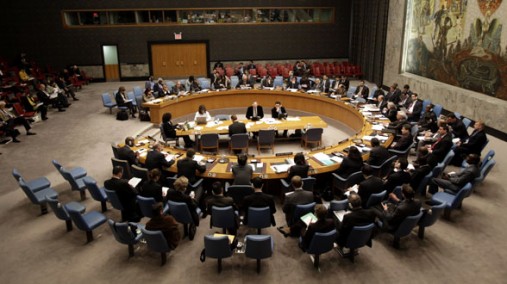Criminal Justice Reform in Post-Conflict States
 The international community sees criminal justice reform as a matter of priority as it assists transitional and post-conflict societies in moving towards peace and the rule of law. In different parts of the world -- from Afghanistan to Iraq, Haiti to Liberia -- numerous international and regional organizations, bilateral donors, and non-governmental organizations are engaged in a variety of activities aimed at rebuilding or developing criminal justice systems.
The international community sees criminal justice reform as a matter of priority as it assists transitional and post-conflict societies in moving towards peace and the rule of law. In different parts of the world -- from Afghanistan to Iraq, Haiti to Liberia -- numerous international and regional organizations, bilateral donors, and non-governmental organizations are engaged in a variety of activities aimed at rebuilding or developing criminal justice systems.
It is critically important that international actors assisting national authorities in this effort understand the broad landscape of criminal justice reform. The reality is that often, they are focused on one particular area of reform and not aware of how reforms to one component of the system affect all others and the inter-linkages between smaller scale efforts and broader justice reform efforts.
A connected justice system cannot be successfully reformed in an unconnected fashion. One should not expect to improve policing in a post-conflict state merely by redrafting police procedures and giving the police more resources. Significant and sustainable improvements in policing also depend on changing the capacity of the courts, enhancing respect for human rights, remolding public attitudes towards law enforcement, and introducing a range of other measures, some of which may seem only distantly related to policing.
In recognition of these complexities, the United Nations Office on Drugs and Crime (UNODC) and the United States Institute of Peace (USIP) have collaborated to produce a guide designed to introduce individuals whose experience in promoting the rule of law may be limited -- whether in extent or scope -- to the entire landscape of criminal justice reform.
This guide's chief ambition is not to offer detailed advice to specialists, but rather to provide a general overview and to enable specialists in all areas to see their own activity within the broad context of the criminal justice reform process. The guide examines particular facets of reform activity (courts, detention, police reform), surveys the wider landscape of criminality in post-conflict and transitional states, and addresses key skills (such as program management and capacity development) pertinent to all types of reform. It also encourages readers to delve more deeply into particular areas and lists a wide range of further reading and resources to facilitate such explorations.